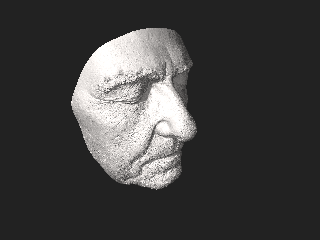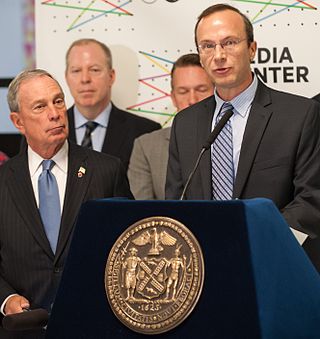Related Research Articles

The Technion – Israel Institute of Technology is a public research university located in Haifa, Israel. Established in 1912 by Jews under the dominion of the Ottoman Empire, the Technion is the oldest university in the country.

Amir Pnueli was an Israeli computer scientist and the 1996 Turing Award recipient.

Science and technology in Israel is one of the country's most developed sectors. Israel spent 4.3% of its gross domestic product (GDP) on civil research and development in 2015, the highest ratio in the world. In 2019, Israel was ranked the world's fifth most innovative country by the Bloomberg Innovation Index. It ranks thirteenth in the world for scientific output as measured by the number of scientific publications per million citizens. In 2014, Israel's share of scientific articles published worldwide (0.9%) was nine times higher than its share of the global population (0.1%).

Ron Kimmel is a professor of Computer Science and Electrical and Computer Engineering at the Technion Israel Institute of Technology. He holds a D.Sc. degree in electrical engineering (1995) from the Technion, and was a post-doc at UC Berkeley and Berkeley Labs, and a visiting professor at Stanford University. He has worked in various areas of image and shape analysis in computer vision, image processing, and computer graphics. Kimmel's interest in recent years has been non-rigid shape processing and analysis, medical imaging, computational biometry, deep learning, numerical optimization of problems with a geometric flavor, and applications of metric and differential geometry. Kimmel is an author of two books, an editor of one, and an author of numerous articles. He is the founder of the Geometric Image Processing Lab, and a founder and advisor of several successful image processing and analysis companies.

Three-dimensional face recognition is a modality of facial recognition methods in which the three-dimensional geometry of the human face is used. It has been shown that 3D face recognition methods can achieve significantly higher accuracy than their 2D counterparts, rivaling fingerprint recognition.

Alex Paul "Sandy" Pentland is an American computer scientist, HAI Fellow at Stanford, Toshiba Professor at MIT, and serial entrepreneur.

Assaf Schuster is an Israeli entrepreneur and professor of computer science whose works have been published in such journals as Computer Aided Verification and Journal of Systems and Software.

Amnon Shashua is an Israeli computer scientist, businessman and philanthropist. He is the Sachs Professor of Computer Science at the Hebrew University of Jerusalem, president and chief executive officer (CEO) of the autonomous driving and driver-assistance technology company Mobileye, Co-founder of the artificial vision devices company OrCam, Founder and owner of ONE ZERO digital bank, and chairman of artificial intelligence company AI21 Labs.

Hossam Haick is an Arab-Israeli scientist and engineer, and the current dean of undergraduate studies at the Israel Institute of Technology. He is a pioneer known for inventing the Nano Artificial Nose (NA-NOSE) for detection of disease from exhaled breath, by which he was highlighted as MIT's Innovators under 35; and which is widely used for sniffing out diseases' biomarkers in labs and industries. He has many contributions in multidisciplinary fields such as Nanotechnology, Nanosensors,, Volatile Biomarkers, and Molecular Electronics.

Craig Gotsman is a professor of Electrical and Computer Engineering at the University of Miami. He was a distinguished professor of Computer Science and Dean of the Ying Wu College of Computing at New Jersey Institute of Technology (NJIT) between 2017-2023. Prior, he was one of the founders of the Cornell Tech campus in New York City and the founding director of the joint Jacobs Technion-Cornell Innovation Institute there.

Hao Li is a computer scientist, innovator, and entrepreneur from Germany, working in the fields of computer graphics and computer vision. He is co-founder and CEO of Pinscreen, Inc, as well as associate professor of computer vision at the Mohamed Bin Zayed University of Artificial Intelligence (MBZUAI). He was previously a Distinguished Fellow at the University of California, Berkeley, an associate professor of computer science at the University of Southern California, and former director of the Vision and Graphics Lab at the USC Institute for Creative Technologies. He was also a visiting professor at Weta Digital and a research lead at Industrial Light & Magic / Lucasfilm.

Moshe Dunie is an Israeli-born American executive and investor in the Greater Seattle Area best known for his executive roles at Microsoft in 1988–1999, culminating as Vice President of the Windows Division. Moshe Dunie is serving on the Board of Governors of the Technion, Israel Institute of Technology. Dunie served as the president of the American Jewish Committee (AJC) Seattle from 2006–2009 and served on the American Jewish Committee National Board. In his role, Dunie interacted with political and business leaders around the world promoting human rights. At Microsoft, Moshe Dunie was responsible for the releases of Windows NT 3.1, NT 3.5, NT 3.51 and NT 4.0 partnering with Dave Cutler. Then as VP of the Windows Operating System Division, Moshe Dunie led the teams that delivered Windows 98, and took Windows 2000 to its final beta release. Moshe Dunie oversaw over 3,000 full-time division engineers and 1,500 contractors. He collaborated with partners such as Intel, PC OEMs, application developers and enterprise customers, initiating a Rapid Deployment Program and extensive beta testing. Microsoft Israel R&D centre and engineering groups in Europe and Asia reported to Dunie as an international extension of the Windows division.
Ayellet Tal is an Israeli researcher in computational geometry and computer graphics, who holds the Alfred and Marion Bar Chair in Engineering at the Technion.

Yonina C. Eldar is an Israeli professor of electrical engineering at the Weizmann Institute of Science, known for her pioneering work on sub-Nyquist sampling.
Lourdes de Agapito Vicente is British computer scientist and academic. She is Professor of 3D Vision in the department of computer science at University College London (UCL), where she leads a research group with a focus on 3D dynamic scene understanding from video. Agapito is the co-founder of the software company Synthesia, and an elected member of the Executive Committee of the British Machine Vision Association.

Michael Bronstein is an Israeli computer scientist and entrepreneur. He is a computer science professor at the University of Oxford and scientific director of Aithyra Institute at the Vienna Biocenter in Austria.

Moshe Shoham is a professor emeritus in the faculty of mechanical engineering at the Technion - Israel Institute of Technology.
StarkWare Industries is an Israeli software company that specializes in cryptography. It develops zero-knowledge proof technology that compresses information to address the scalability problem of the blockchain, and works on the Ethereum platform. In May 2022, the company's estimated value was $8 billion, an increase from $2 billion six months earlier.

The TUM School of Computation, Information and Technology (CIT) is a school of the Technical University of Munich, established in 2022 by the merger of three former departments. As of 2022, it is structured into the Department of Mathematics, the Department of Computer Engineering, the Department of Computer Science, and the Department of Electrical Engineering.
Emanuel Milman : is a professor at the Technion – Israel Institute of Technology’s Faculty of Mathematics, where he holds the prestigious Yitzhak Modai Academic Chair. His primary areas of research are Analysis and Geometry.